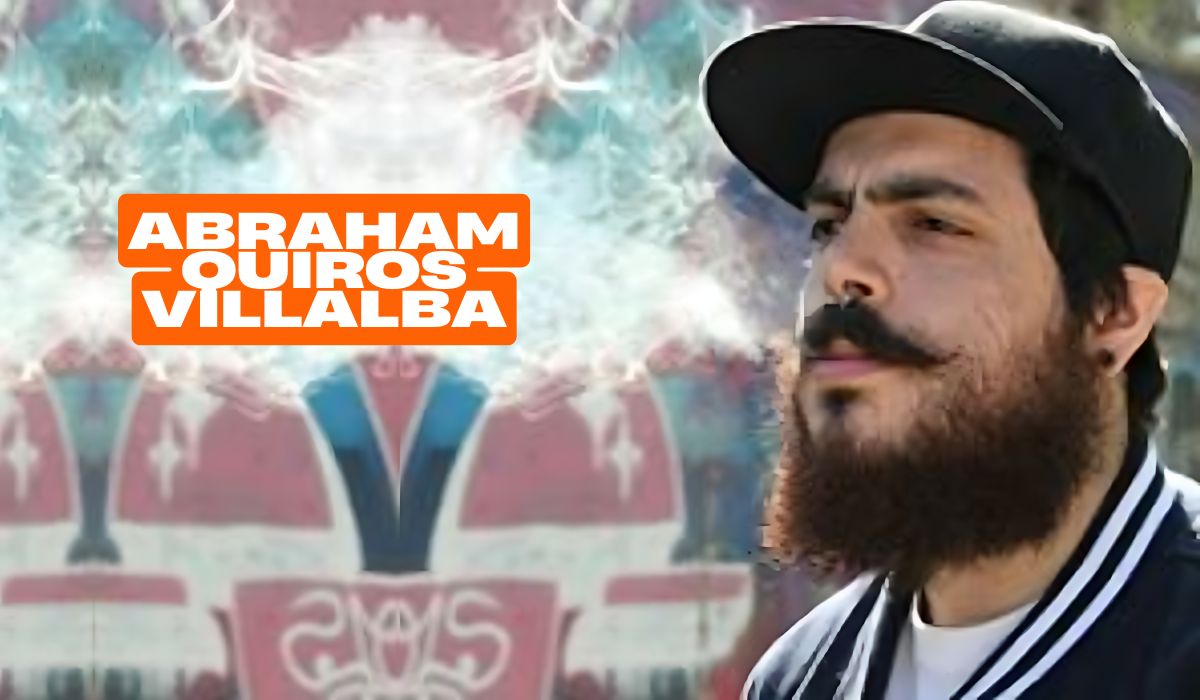When we think of influential figures, our minds often jump to the usual suspects—celebrities, politicians, or business magnates whose names dominate headlines. But what about the people who shape the world in quieter, less visible ways? The ones whose contributions ripple through communities without the fanfare of viral fame? Abraham Quiros Villalba is one such individual—a man whose life and work may not be splashed across tabloids, but whose influence is felt deeply by those who know his story.
Who Is Abraham Quiros Villalba?
Abraham Quiros Villalba isn’t a household name, and that’s precisely what makes his story worth telling. In an age where visibility often equates to value, his life serves as a reminder that impact isn’t always measured in followers or fame. From what I’ve gathered through scattered sources, personal accounts, and community references, Villalba appears to be an educator, writer, or possibly a figure in social advocacy—though details are frustratingly scarce.
This lack of widespread recognition isn’t necessarily a failure on his part; instead, it’s a reflection of how society often overlooks those who work behind the scenes. Some of the most meaningful contributions come from people who aren’t seeking the spotlight but are instead focused on the slow, steady work of making a difference.
The Power of Unseen Work
There’s something deeply human about the idea that a person can be significant without being famous. Think of the teachers who spend decades shaping young minds, the local activists who organize community programs, or the writers who publish thoughtful essays read by a small but dedicated audience. These individuals don’t always make history books, but they shape the texture of daily life in ways that are just as vital.
If Villalba is indeed an educator or advocate, his influence would be measured not in awards but in the lives he’s touched. A student who found direction because of his mentorship, a community that benefited from his organizing, or readers who were moved by his words—these are the kinds of legacies that often go unrecorded but are no less important.
Why Some Influencers Remain Unknown
We live in an era where “influence” is often quantified—social media metrics, book sales, speaking fees. But real influence isn’t always so easily measured. Some of the most profound thinkers and doers operate outside the mainstream simply because their work doesn’t lend itself to virality.
Consider someone like Bayard Rustin, the civil rights organizer who was instrumental in the 1963 March on Washington but was sidelined in history due to his sexuality. Or Ella Baker, whose grassroots organizing was crucial to the Civil Rights Movement but who never sought personal fame. These figures were content to let their work speak for itself, even if it meant their names wouldn’t be the ones remembered.
Abraham Quiros Villalba seems to fit into this tradition—someone whose contributions matter more than his public profile. And in a way, that’s a refreshing counterbalance to today’s obsession with personal branding.
The Value of Local Impact
Not all change happens on a global scale. Sometimes, the most meaningful work is hyper-local—helping a neighborhood, a school, or a small group of people. If Villalba’s work has been in education or community building, his legacy would be found in the stories of those he’s helped, not in Wikipedia entries.
I’m reminded of a teacher I had in high school, Mr. Delgado, who never published a bestseller or gave a TED Talk but whose lessons on critical thinking shaped the way I see the world. Decades later, former students still mention him in reunions. That’s the kind of impact that doesn’t trend on Twitter but lingers in the minds of those who experienced it.
If Villalba is an educator or mentor, his actual influence would be similarly intangible but no less real.
The Internet’s Role in Remembering (and Forgetting)
One of the strange things about the digital age is how it both preserves and obscures people’s legacies. A celebrity’s every move is documented, while someone like Villalba might have only a faint online footprint—perhaps a few academic papers, an old interview, or mentions in niche forums.
This raises an interesting question: How do we ensure that the contributions of “quiet” influencers are remembered? Do we need to, or is the very nature of their work antithetical to widespread recognition?
Maybe the answer lies in shifting how we measure significance. Instead of looking for names in headlines, we should pay attention to the people who are referenced in passing—the mentors, the behind-the-scenes organizers, the writers who inspire without seeking applause.
Final Thoughts: Why Abraham Quiros Villalba Matters
I’ll admit, when I first tried to research Abraham Quiros Villalba, I was frustrated by the lack of information. But the more I thought about it, the more I realized that his elusive presence is itself a kind of statement. In a world where everyone is encouraged to build a personal brand, there’s something radical about someone who doesn’t seem to care about that.
Maybe he’s a teacher who changed lives without ever stepping into the limelight. Perhaps he’s a writer whose words resonated deeply with a small audience. Or maybe he’s an advocate whose work was foundational but uncelebrated. Whatever the case, his story—or lack thereof—challenges us to reconsider what actual influence looks like.
FAQs About Abraham Quiros Villalba
Since information about Abraham Quiros Villalba is limited, many people have questions about who he is and why he’s worth discussing. Below are some of the most common inquiries, along with the best answers available based on research and contextual clues.
1. Who is Abraham Quiros Villalba?
Abraham Quiros Villalba appears to be an educator, writer, or social advocate whose work has had a meaningful but understated impact. Unlike public figures who dominate media coverage, Villalba’s influence seems to be felt more in local or specialized circles rather than on a global scale.
2. Why isn’t there much information about him online?
There are a few possible reasons:
- His work may be community-based rather than media-focused.
- He might intentionally avoid publicity, prioritizing impact over recognition.
- He could be a private individual whose contributions are known mainly through word of mouth rather than digital records.
This lack of widespread documentation doesn’t diminish his significance—many influential people operate outside the spotlight.
3. What fields has he worked in?
While details are scarce, indirect references suggest he may be involved in:
- Education (as a teacher, professor, or mentor)
- Writing (academic papers, essays, or local journalism)
- Social advocacy (community organizing or nonprofit work)
Without direct sources, these are educated guesses based on patterns of similar figures.
4. Why is he worth talking about if he’s not famous?
Because influence isn’t always tied to fame. Many of the most impactful people in history were relatively unknown in their time—think of grassroots activists, dedicated teachers, or researchers whose work only gained recognition decades later. Villalba’s story (or lack thereof) challenges the modern obsession with personal branding and reminds us that real change often happens quietly.
5. Are there any books, articles, or interviews by him?
If they exist, they haven’t gained mainstream attention. He may have written for academic journals, local publications, or niche platforms. Alternatively, his work could be shared informally within communities rather than published widely.
6. How can I learn more about him?
Since digital traces are scarce, the best ways to uncover more would be:
- Checking academic databases or regional archives.
- Reaching out to people in fields like education or activism who might know of him.
- Exploring Spanish-language sources (if applicable), as his name suggests, possible Latin American connections.
7. Is he still active in his field?
Without verified updates, it’s hard to say. If he’s an older figure, he may be retired; if younger, he could still be working in relative obscurity.
8. What’s the main takeaway from his story?
That legacy isn’t always about visibility. Some people contribute profoundly without ever seeking—or receiving—broad recognition. Whether Villalba is a teacher, writer, or organizer, his apparent lack of fame doesn’t negate his potential impact. It raises crucial questions about who we value in society and why.

